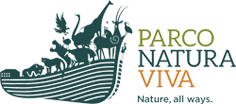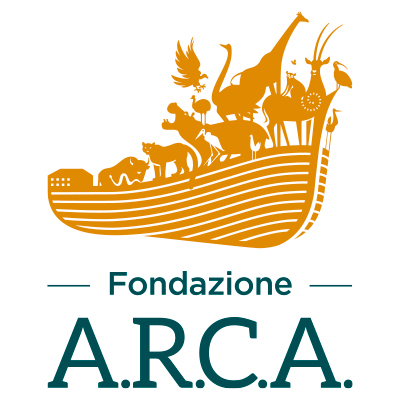Research activities
Parco Natura Viva has one of the most active research programmes in the Italian zoo community. In October 2008 Parco Natura Viva organized the 1st national conference on zoo based researches; this meeting has become an important annual event. Parco Natura Viva’s Research Department conducts researches to improve animal management and wildlife conservation as well as to increase the knowledge about animal biology and welfare. Researches in Parco Natura Viva focus primarily on animal behaviour, cognition, sociality, environmental enrichment and training. Many students prepare their thesis under the supervision of the Research Department and different scientific publications are made each year.The Research Department is responsible for assessing and maintaining the welfare of the animals in scientific research projects.
By examining the influence that the physical and social environment has on the specimens in the Park, training programs and enrichment are defined:
- Enrichment: a dynamic process in which changes within the exhibits are designed to increase the behavioral choices of animals and induce the expression of appropriate behaviors and abilities typical of the species, thus enhancing animal welfare.
- Training: techniques are based on the individual learning through the manifestation of a behavior followed by a consequence, a reward. The training has become a useful tool to reduce stress in the daily management of the animals (i.e. exit and entry procedures) and non-invasive veterinary care (medication administration, inspections and more).
Providing daily environmental enrichment for animals proves labor intensive, in terms of time; the elaborate maneuvers which enable the animal to maintain alertness and vitality within its exhibit, take the keeper who does the preparation a lot of time during the day.
Here’s some data: many species are involved, and in the course of a day they are prepared manipulative and non-manipulative enrichments!
In addition to using products purchased ad hoc (tableware in totally biodegradable material, such as vases, bowls, paper bags, sacking etc..), the Research Department has spent time collecting waste material from the employees such as used clothing and shoes, cardboard boxes of all sizes, bread bags, plastic containers, rolls of paper towels, toilet paper and any other object can be used to contain seeds, straw, fruit and vegetables!
Conservation Projects
The Research Department promotes and monitors research projects ex situ (away from the place of origin) and in situ (in aid of species in their natural environment; this also benefits ecosystems and biodiversity); both of which have the goal of sharing information useful for the conservation of natural and/or zoological elements.
The ex situ projects are intended to develop data useful for the management of captive populations, which is then developed through thesis and doctoral degrees. The in situ projects are aimed at the re-entry of individual animals, often in collaboration with international partners. Throughout this year, the Research Department has contributed to the definition and implementation of the in situ conservation programs listed on the opposite page.
CLICK HERE TO DISCOVER
OUR RESEARCH ACTIVITIES (ITA)
Veterinary department
As a modern zoo, Parco Natura Viva-Garda Zoological Park aims at the conservation of native and exotic species to ensure their survival in the wild and their good health in captivity. There are European husbandry guidelines for many species with rules for minimum accommodation, husbandry, diet, etc. Modern zoos need to renovate enclosures to give to the animals a captive condition close to their natural habitat, improving their welfare. Recently, Parco Natura Viva has been making gradual replacement of animal housing to complete the transformation into a modern zoological garden. Zookeepers take care of wild animals in zoos and work to ensure animal health and welfare.The zoo-vet’s job is to keep the animals as healthy as possible and, together with keepers and scientists, optimise their welfare. Vets carry out a preventative health care programme, help with nutrition and advise on the design of enclosures. Since group composition is very important for animal welfare, the zoo-vets plan the transfers of animals between zoos: they are in contact with the European coordinators of the zoological collections and with the local authority. Zoo-vets also make scientific research to learn and spread information about their experience. New non-invasive techniques such as training, facilitate the vets’ job and dramatically reduce the stress of both the sick individual and its cage-mates.
CLICK HERE TO DISCOVER
OUR VETERINARY DEPARTMENT (ITA)
Parco Natura Viva offers an opportunity for students from different departments to make an important experience developing research projects in close contact with the Park’s staff.
The main areas of interest of our Research & Conservation department are: social relationships, animal behavior, cognition, social learning, mother-baby relationship, socialization, lateralization, management of animals in captivity, animal welfare and conservation.
From research projects It’s possible to extract scientific publications and also You could take part in national and international conferences.
We give the possibility to produce about 15 bachelor and master degrees per year and creating doctoral thesis.
The main areas of interest of our Research & Conservation department are: social relationships, animal behavior, cognition, social learning, mother-baby relationship, socialization, lateralization, management of animals in captivity, animal welfare and conservation.
From research projects It’s possible to extract scientific publications and also You could take part in national and international conferences.
We give the possibility to produce about 15 bachelor and master degrees per year and creating doctoral thesis.
 Italiano
Italiano English
English Deutsch
Deutsch




